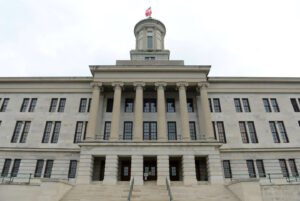North Carolina professor files lawsuit after firing over CRT criticism
(The Center Square) – A teacher at the North Carolina Governor’s School recently filed a lawsuit against state officials who he claims fired him for questioning the school’s critical race theory…

(The Center Square) – A teacher at the North Carolina Governor’s School recently filed a lawsuit against state officials who he claims fired him for questioning the school’s critical race theory ideology.
David Phillips filed the lawsuit in Wake County Superior Court with the help of the Alliance Defending Freedom, a nonprofit legal organization, claiming multiple violations of the North Carolina Constitution.
Phillips, a well-respected college English professor, spent eight summers teaching talented high school seniors at the Governor’s School’s residential summer program, but was fired mid-session without explanation in June 2021 following a series of three optional seminars criticizing critical race theory.
Critical race theory is an ideology that has been increasingly adopted by public schools that frames the world in terms of race, sex, and religion, and labels individuals as oppressors or victims based on their characteristics.
Phillips’ lawsuit details how the Governor’s School has embraced and ingrained critical race theory in the school culture, resulting in hostility toward students and staff who don’t believe in its principles. It also outlines special privileges for “oppressed” student populations, CRT concepts included in the curriculum, CRT concepts superseding academic merit in student admissions and Phillips’ unsuccessful efforts to address the issues with administrators.
The lawsuit cites several examples of CRT in the formal curriculum, including that “racism can only be committed by white people,” “any questioning of critical theory or its concepts by a white person is an expression of ‘white fragility,’ which functions to perpetuate racism,” and “gender is not binary but rather exists on a spectrum and is based on a person’s felt identity,” among other lessons.
Those lessons, the lawsuit argues, belie school literature describing the Governor’s School as a place where elite students “learn to examine and articulate their opinions,” and are encouraged to “listen to the perspectives of others,” and “become aware of a wide range of differing viewpoints and thinking.”
“In an academic environment committed to exploring a wide range of differing viewpoints, as the Governor’s School claims to be, no teacher should be fired for offering a reasoned critique of critical theory. But that’s what happened to Dr. Phillips,” said ADF Senior Counsel Hal Frampton. “There is no lawful explanation for the way North Carolina public school officials treated Dr. Phillips. He was beloved, respected, and regarded by both students and faculty as an advocate for students who felt that their voices weren’t being heard and their perspectives weren’t welcomed at the Governor’s School. By firing him, the Governor’s School violated his constitutional right to free speech and unlawfully retaliated against him for deviating from the Governor’s School’s ideological orthodoxy.”
Phillips’ three optional seminars for 2021 involved a social psychology critique of some concepts from critical theory, understanding speech through the lens of speech-act theory and the increasing ideological bias and lack of viewpoint diversity in higher education.
“The day after Dr. Phillips’s third optional seminar, which, ironically, discussed the importance of viewpoint diversity in higher education, Defendants fired Dr. Phillips without warning or explanation,” the lawsuit reads. “Later, Dr. Phillips learned that a few staff members had complained about the content of the optional seminars. But instead of investigating these complaints, determining if any policies were violated, or addressing any concerns with Dr. Phillips — indeed without even giving Dr. Phillips an opportunity to hear the complaints and respond — Defendants took their won stand against viewpoint diversity by firing Dr. Phillips because they disagreed with his views.”
Phillips alleges school and state officials violated free speech, race discrimination, religious discrimination, and fruits of their labor clauses of the North Carolina Constitution. He wants his job back, as well as “back pay, front pay, compensatory damages, nominal damages, damages for pain, suffering, emotional distress, reputational harm, and such other damages to which he may be entitled,” in addition to legal fees and costs.



